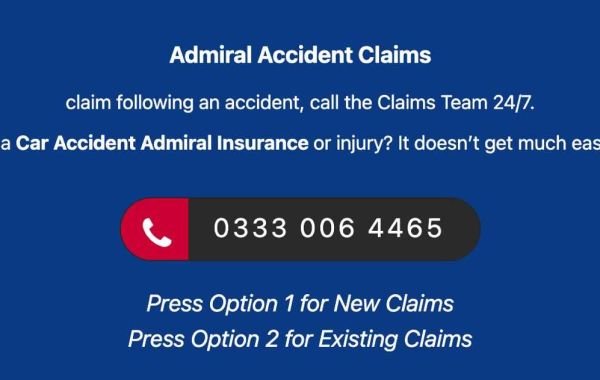Accidents can be unexpected and stressful, but knowing how to report an accident claim can make the process smoother and ensure you get the support you need. Whether it's a car accident, workplace injury, or public liability case, filing a claim correctly is essential to receiving compensation for damages. Here’s a comprehensive guide on how to report accident claims effectively.
1. Ensure Safety and Seek Medical Attention
Before filing an accident claim, your priority should be the safety of everyone involved. If necessary, call emergency services and seek medical attention for any injuries. A medical report will be vital later in the claims process to prove the extent of injuries sustained.
What to Do:
- Call emergency services if needed.
- Get medical attention immediately, even if injuries seem minor.
- Keep all medical records and bills for future claims.
2. Gather Information at the Accident Scene
If possible, gather as much information as you can at the scene of the accident. This will be crucial when filing your claim. Whether it's a car crash or a slip-and-fall accident, the more evidence you collect, the better your chances of a successful claim.
What to Collect:
- Contact Details: Gather contact information from all parties involved, including names, phone numbers, and addresses.
- Photos: Take photos of the accident scene, damages, and any visible injuries. For car accidents, photograph the vehicles and surrounding areas.
- Witnesses: If there are witnesses, ask for their contact details and statements.
- Police Report: If the police are involved, request a copy of the official accident report.
Tip: Write down your own account of the incident while it’s fresh in your mind, noting details such as the time, location, and weather conditions.
3. Notify Your Insurance Company
If the accident involves your vehicle, property, or workplace, inform your insurance company as soon as possible. Most insurers require you to report the incident within a specific timeframe, and delaying this step could harm your chances of making a successful claim.
What to Provide:
- Policy Number: Have your policy details ready.
- Accident Details: Provide a clear and accurate description of what happened, including the time and place of the accident, and any damages or injuries.
- Documentation: Share the evidence you collected, such as photos, witness details, and the police report.
Tip: Be honest with your insurer and avoid exaggerating details. Misrepresentation can lead to claim denial.
4. File an Official Accident Report
For workplace or public accidents, you may need to file an official accident report with the relevant authorities. This is particularly important in the case of workplace injuries, where health and safety regulations apply.
What to Do:
- Workplace Accidents: Report the incident to your employer immediately. Your employer is required to document the accident and may need to report it to their insurer.
- Public Accidents: If the accident occurred in a public space, report it to the relevant authorities (e.g., city council or property management).
Tip: Keep a copy of any reports you file, as they will serve as important documentation during the claims process.
5. Seek Legal Advice if Necessary
For serious accidents, it’s wise to consult a personal injury lawyer, especially if the claim involves significant damages, long-term medical treatment, or disputes over fault. An experienced lawyer can guide you through the process and help you maximize your compensation.
When to Consult a Lawyer:
- If fault is disputed by the other party or their insurance company.
- If the accident caused significant injuries or property damage.
- If your insurance company denies your claim or offers an inadequate settlement.
Tip: Many personal injury lawyers offer free consultations and work on a no-win, no-fee basis, meaning they only get paid if your claim is successful.
6. Keep Detailed Records
Throughout the claims process, maintain detailed records of all communications and documents. This includes emails, letters, medical bills, repair estimates, and any communication with insurance companies or legal representatives.
What to Record:
- Medical and Repair Bills: Document all expenses related to the accident, including medical treatment, vehicle repairs, or any other damages.
- Communication Log: Keep a log of all conversations with your insurer or lawyer, including dates and key points discussed.
- Insurance Payments: Track any payments or compensation received.
Tip: Having an organized record will streamline the process and ensure that nothing is overlooked.
7. Follow Up and Be Persistent
The claims process can sometimes be slow, but it’s important to follow up regularly with your insurance company or legal representative to ensure your claim is progressing. Don’t hesitate to ask for updates or clarification on any aspect of the claim.
What to Do:
- Follow up with your insurer periodically for updates.
- Ensure all paperwork and documentation is submitted promptly.
- Ask your lawyer for progress reports if you’ve enlisted legal help.
Conclusion: Reporting Accident Claims Efficiently
Filing an accident claim can be a complex process, but with the right steps, you can ensure you get the compensation you deserve. From gathering evidence at the scene to seeking legal advice when needed, following these guidelines will help you report your accident claim efficiently and with confidence.
Visit: https://claimscontact.com/








